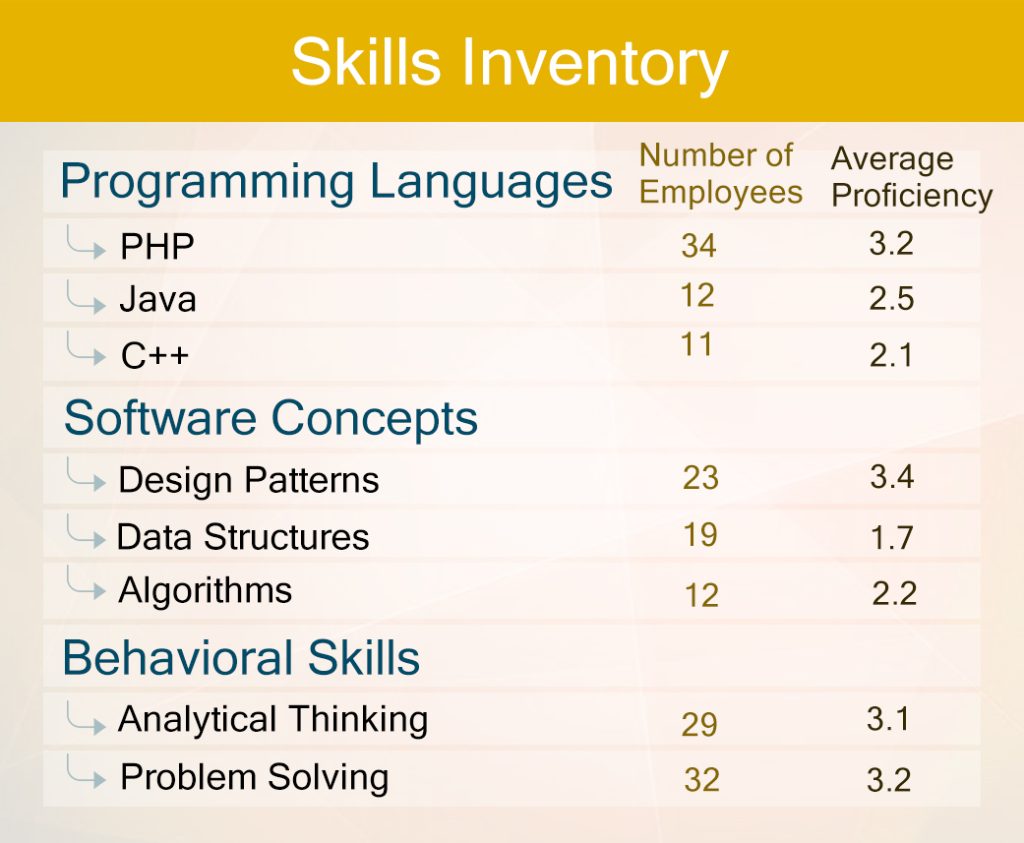Introduction
The COVID-19 pandemic has brought about a significant shift in the job market, with many industries experiencing a rapid transformation and the emergence of new skill requirements. As we move forward, it is crucial to understand these evolving demands to prepare for future employment opportunities.
The pandemic has accelerated technology adoption across various sectors, increasing the demand for data science, cybersecurity, and cloud computing skills. Additionally, the rise of remote work has created a need for effective communication, collaboration, and time management skills.
Soft skills have also gained prominence as employers seek individuals with strong adaptability, problem-solving, and critical-thinking abilities. These skills are essential for navigating the ever-changing workplace and thriving in a dynamic environment.
To stay ahead of the curve, individuals should continuously upskill and reskill themselves, embracing lifelong learning and staying abreast of emerging trends. In this blog post, let us explore how soft skills taxonomy can help them achieve this and position themselves for success in the evolving job market.
Soft Skills Taxonomy as a Framework: The Concept
A soft skills taxonomy organizes essential skills like communication, problem-solving, and teamwork into clear categories, making it easier for companies to assess, develop, and nurture these abilities in their employees. It is a helpful guide for building strong, more cohesive teams in the workplace.
The Growing Significance of Soft Skills
Navigating the dynamic and modern professional world requires specialized expertise and an indispensable array of soft skills. In an era where job requirements are evolving rapidly, acquiring soft skills has become paramount for long-term career success.
Gone are the days when only technical knowledge and practical abilities determined a candidate’s professional viability. Now, the individual’s ability to effectively communicate, collaborate, analyze, adapt, and learn sets them apart in competitive job markets.
This demand for soft skills stems from the changing nature of work, with technological advancements blurring the boundaries between jobs and increasing the need for versatility in adapting to emerging technologies.
Research conducted by LinkedIn indicated that as many as 57% of hiring managers emphasize soft skills over technical skills. This widespread acknowledgment of the importance of soft skills is because there is often a crossover between job roles.
A strong communicator, both verbally and in writing, is a high-value asset in industries ranging from technology to education. Similarly, the ability to think critically, collaborate effectively, and manage and prioritize tasks seamlessly translates across multiple professions.
Technology-Mediated Skills Matching: A Perfect Fit
In our digitally-driven world, technology has revolutionized the process of talent identification and development. For instance, skills assessment tools utilizing artificial intelligence analyze behavioral patterns and verbal clues to gauge an individual’s soft skills profile. These automated assessments are valuable in the initial screening of applications.
Additionally, skills-based talent matching has emerged as a highly effective strategy, connecting skilled individuals with suitable job opportunities. Online platforms leverage this approach to foster successful matches, considering an individual’s soft skills and technical and professional experiences.
Soft skills will continue to play a pivotal role in job satisfaction and professional success. Individuals who invest in honing their soft skills will find themselves well-positioned for continued growth and success in the evolving landscape of the modern workplace.
Decoding the Skill Maze: Unraveling the Significance of Skills Taxonomy
Organizations thrive on their employees’ skills and talents in today’s dynamic business environment. To effectively manage this valuable resource, they employ a unique skills taxonomy tool.
- Categorizing Skills for Clarity
A skills taxonomy is like a detailed organizational chart for skills. It categorizes and arranges technical and soft skills into a well-structured system, making it easier to identify, assess, and develop these skills among employees. This allows organizations to create a roadmap for talent growth and align individual aspirations with company goals.
- Balancing Technical Expertise and Soft Skills
While technical skills, like coding or engineering expertise, are undoubtedly important, soft skills cannot be overlooked. Effective communication, problem-solving, and teamwork are just a few examples of soft skills that significantly impact both individual and organizational performance.
Studies have shown that soft skills are crucial in employee engagement, productivity, and innovation. Highly skilled teams work more efficiently and foster a positive, collaborative work environment, driving overall organizational success.
- Embracing Skills Taxonomy for a Skilled Workforce
By embracing a skills taxonomy, organizations can harness the power of their collective skills to achieve strategic objectives. It empowers them to identify skill gaps, tailor training programs, and make informed decisions about talent management. As a result, companies can build a resilient and adaptable workforce capable of navigating the ever-changing business landscape.
As a skills analytics platform, IYS Skills Tech is filling the gap in skill development through its IYS Skills Taxonomy and Skills Profiler tools that enable the mapping of skills of candidates and jobs in a comprehensive manner covering all aspects of talent, including knowledge, tools, activities, domain knowledge and more.
Identifying and Valuating Soft Skills Through IYS Skills Profiler
In today’s dynamic and unpredictable professional environment, success increasingly hinges on soft skills – interpersonal attributes like communication, teamwork, and adaptability.
A study by the World Economic Forum predicts that by 2030, the top ten fastest-growing job roles will be heavily reliant on soft skills. Platforms like Nestor employ sophisticated assessment methods to gauge individuals’ soft skill profiles effectively, providing data-driven insights for targeted skill development.
By prioritizing soft skills development, organizations can foster a high-performing and adaptable workforce well-equipped to navigate the ever-evolving world of work.
IYS Skills Tech offers Skills Profiler to accelerate this process. It is a revolutionary approach to soft skills assessment, using AI and behavioral analysis to gain deep insights into an individual’s soft skills profile, along with other aspects like functional/technical skills, certifications, knowledge, etc.
In essence, the IYS Skills Profiler comprehensively maps candidates’ skillsets for jobs. The back end has a constantly updated Skills Taxonomy, and the front end has an intuitive UI. Its goal is to make comprehensive profiling easy and precise.
Building a Soft Skills Taxonomy: A Few Steps
Building a soft skills taxonomy involves the following:
- Skill Selection
Determine the soft skills crucial for your organization’s success.
- Common Language
Establish a standardized language for skill levels and competencies.
- Employee Involvement
Include employees in the taxonomy development process.
- Empowering Managers
Equip managers with tools to assess and develop soft skills.
The IYS Skills Profiler enables organizations to effectively identify, categorize, and evaluate skills, providing a structured framework for skill development and talent management.
Assessing Current Capabilities and Skill Gaps
Identifying skill gaps is crucial for organizational growth. Organizations can evaluate current skill levels and align them with learning and performance goals through surveys, self-assessments, and feedback.
By bridging skill gaps, organizations can empower their workforce and pave the way for organizational success.
In this context, the IYS Skills Taxonomy and Skills Profiler serves as a ‘Google Maps’ for HR professionals, pinpointing the precise skills of applicants or prospective employees and delivering essential skill-related information to HR managers and recruiters.
Keeping the Soft Skills Taxonomy Relevant and Dynamic
Continuous updates and collaboration are essential to maintain the relevance and dynamism of a soft skills taxonomy. Engaging industry experts, researching organizations, and utilizing open resources are important to identify emerging skills.
By actively incorporating new skills and trends, organizations ensure that their taxonomy remains a valuable tool for skill development and workforce optimization.
Implementing the Soft Skills Taxonomy for Organizational Growth
A clear soft skills taxonomy is a powerful tool for organizational growth. Providing a structured framework for identifying and assessing competency gaps enables organizations to tailor development programs and initiatives to address specific skill needs.
The taxonomy enables effective career development planning, facilitating identifying skills required for career advancement and guiding employees in their skill development journeys.
Additionally, job rotations and succession planning can be optimized using the taxonomy, ensuring that individuals are positioned for success in new roles and that the organization has a robust talent pipeline for critical positions.
Conclusion
In today’s dynamic business landscape, soft skills have become paramount for success. Organizations need a structured approach to identification, development, and evaluation to harness the power of these essential abilities.
This is where a soft skills taxonomy can offer a comprehensive framework to categorize, assess, and manage soft skills across the workforce.
Creating a soft skills taxonomy empowers HR to address skill gaps, tailor development programs, and make informed talent decisions. It can revolutionize career development, job rotations, and succession planning, ensuring a future-ready workforce equipped to navigate the ever-changing demands of the modern workplace.
Your organization can harness the transformative potential of IYS Skills Tech’s Skills Taxonomy and Skills Profiler to build a robust and dynamic skills taxonomy, empowering your workforce and propelling your organization to new heights of success. Embrace the future of talent management today!
For more details, contact us at connect@itsyourskills.com





